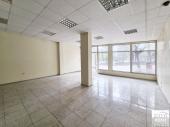|
News
| Currency board in Bulgaria: twenty years later - pros and cons |
|
Monday, Jul 03, 2017 |
|
n the past twenty years Bulgaria’s macroeconomic indicators and public finance have been subject to the so-called currency board which was introduced on July 1, 1997. A currency board is a monetary authority which is required to maintain a fixed exchange rate with a given foreign currency. A currency board maintains absolute, unlimited convertibility between its notes and coins and the currency against which they are pegged, at a fixed exchange rate, with no restrictions on current-account or capital-account transactions. Initially, the Bulgarian currency (BGN) was pegged to the Deutsche Mark and later on - to the Euro. The assets insuring the money in circulation are also converted in Euro and amount to over EUR 23 billion.
The currency board is rarely used in Europe. In other words, it is a temporary measure which aims at providing stability in countries experiencing financial crises. Stability is what the Bulgarian economy and the country’s finance needed in the mid 1990’s when a series of banks went bankrupt, inflation skyrocketed and exceeded 500% and Bulgaria was facing bankruptcy for the second time in less than ten years. However, a lot of time passed since then, many things changed and the country’s economy nowadays is far more mature, developed and powerful. This is due to a big extent to the currency board. A currency board guarantees stability and predictability, but also impedes the fulfillment of some brave and radical reforms. Moreover, the central bank is incapable of making active monetary policies that encourage the local business. All political parties and economic experts are unanimous that the currency board must be kept until Bulgaria adopts the Euro. However, it is still unclear when Bulgaria will become a member of the Eurozone and the local politicians and economists share different views on that topic.
Undoubtedly, the Bulgarian authorities support the idea for transition from a currency board to the Eurozone, although the European Central Bank has not yet invited this country to become a member of the currency union and it doesn’t look like things will change soon. Sofia is aware that Bulgaria’s accession to the Eurozone is not in the current agenda of the European Union and is ready to enter at least the European Exchange Rate Mechanism ERM2 (the so-called Eurozone waiting room) for the time being. Moreover, many Bulgarians do not show enthusiasm to receive their salaries in Euros or pay their bills and make purchases in that currency, because they think consumer prices may go up when Bulgaria adopts the Euro. According to a recent survey, 45% of the Bulgarian nationals believe that Bulgaria doesn’t need the Euro at the moment. Even if Bulgaria enters the ERM2, no one knows for sure how long the country will stay in the waiting room of the Eurozone. The countries which already went through the ERM2 stayed there for 7-8 years on the average. However, that happened in times when the EU enlargement processes were gaining momentum, whereas now the attention is mainly focused on Brexit, different scenarios and ideas about Europe such as the one about a multi-speed Europe, the division of the EU into core and periphery, etc. That is why it is not clear how long Bulgaria will stay in the ERM2, if it enters the Eurozone waiting room. In other words, the currency board seems to have no alternative in the near future.
We should note that some financial experts and economists are making feeble attempts to explain that the currency board has started to slow down the growth of the country’s gross domestic product and that Bulgaria could reach a higher GDP growth if a floating exchange rate is introduced. However, the majority of the Bulgarians still remember the terrible economic and financial catastrophe that occurred in the mid 1990’s which was overcome due to the introduction of the currency board. Those people are now happy with the foreseeability provided by the currency board and do not believe those who claim that now things would be even better without the currency board. Moreover, Bulgaria does not need to adopt the Euro urgently, because the Bulgarian Lev is pegged to the Euro at a fixed exchange rate and the single European currency is used in many large-scale deals and purchases in this country. |
|
|
Source:
http://bnr.bg/en
|
|
|
|
|
| » RENTALS |

|
|
|
| Shop / Retail |
€ 385 |
|
| Location: |
Veliko Tarnovo |
|
|

|